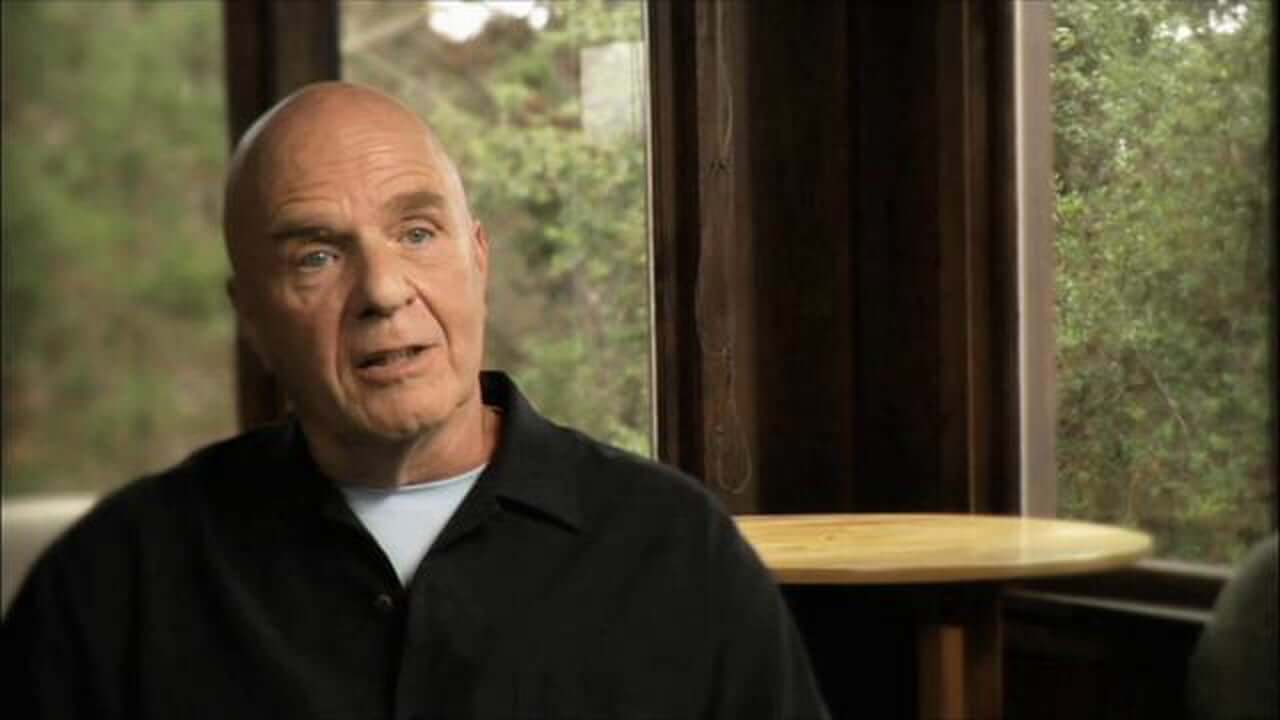Wayne Dyer: Motivation Without Barriers

How many times have you heard motivational phrases that didn’t really seem to mean anything to you? Well, there are some extremely famous and dedicated authors who did make their words mean something, moreover to millions of people. One such author was Dr. Wayne Dyer, popularly known as the father of barrier-free motivation.
Wayne Dyer was the author of quotes like “being aware of routine means taking the first step to change it.” Thanks to this and other phrases, he made people take a serious look at their own lives. Therefore, it’s well worth knowing a little more about this renowned psychotherapist.
Who was Wayne Dyer?
Wayne Dyer deeply believed in motivation without barriers. That’s why his own fans dubbed him fondly “the father of motivation.” In fact, it’s how he made a name for himself in the field of self-empowerment theories.

Dyer was born in Detroit and had a really tough childhood. After living in various foster homes and orphanages, he managed to get away from his bad start in life. Eventually, he received his bachelor’s and doctorate degrees in psychology from Wayne and Michigan Universities.
He became a teacher and taught at various levels, from the youngest children to university students. However, his great fame arrived thanks to his writing. One of his most famous books is entitled Your Erroneous Zones. It’s this book that brought him to the attention of the general public.
Following the publication of this work in 1976, Dyer wrote in excess of another 40 books on motivation, self-help, and personal empowerment. He appeared on various radio and television shows and became a motivational guru and avid speaker until his death from leukemia in 2015.
Motivation without barriers
From a very young age, Wayne Dyer was interested in motivation and the capacities of the human being. For this reason, he began to study Abraham Maslow early in his career. In fact, Dyer considered that humanistic psychology should be the fourth paradigm of psychology, after psychoanalysis, behavioral psychology, and cognitive psychology.
Dyer demonstrated, from his earliest works, his firm belief in the ability of human beings to transcend themselves. Indeed, he said we must be extraordinary.
“Anything you really want, you can attain, if you just go after it.”
-Wayne Dyer-

In other words, Dyer believed that human beings shouldn’t have limits, certainly not in their minds. He believed that to develop their full potential, a human being has to aspire to the extraordinary. In fact, that we shouldn’t set limits on ourselves when reality already does this for us.
On the other hand, this psychotherapist didn’t believe in theories that spoke of normalizing the extraordinary in other contexts. For example, he didn’t think that normalizing severe disease could help a patient. In fact, he believed that this kind of illness should be seen as an extraordinary event and, consequently, the patient should aspire to their highest goal of being cured or healed.
As a matter of fact, Dyer, the father of his own theory on barrier-free motivation, believed that our real goal is to live life with total joy, without the need to mistreat anyone. For this, we have to perform all kinds of tasks that improve the world, both for ourselves and for all the creatures that live in it. Moreover, we must think about who’ll be left when we’re gone and what we’ll leave behind for them.
The extraordinary life of Wayne Dyer
Wayne Dyer defended the capacity of the human being to enjoy an extraordinary life. In fact, he considered that his objective was to get every man and woman to see themselves as being able to change their ideas.
Dyer believed that humans aren’t the product of race, religion, or being born in one place or another. Indeed, for this psychotherapist, everyone was and is an eternal spirit. Furthermore, he condemned the damage caused by the labels we use in life and he claimed we have the ability to change the world.
In fact, Dyer believed so much in the eternity of the human spirit that, shortly before he died, he said he was eager to begin the new path that lay before him. In other words, for this borderless motivator, death was nothing more than a new transformation that would lead to a new beginning.
“If you change the way you look at things, the things you look at change.”
-Wayne Dyer-

It’s easy to agree with Wayne Dyer’s theories of motivation without barriers. Indeed, there’s little doubt that his words and work not only changed his life but that of the many people who listened to him. He was, indeed, an extraordinary man.
This text is provided for informational purposes only and does not replace consultation with a professional. If in doubt, consult your specialist.








